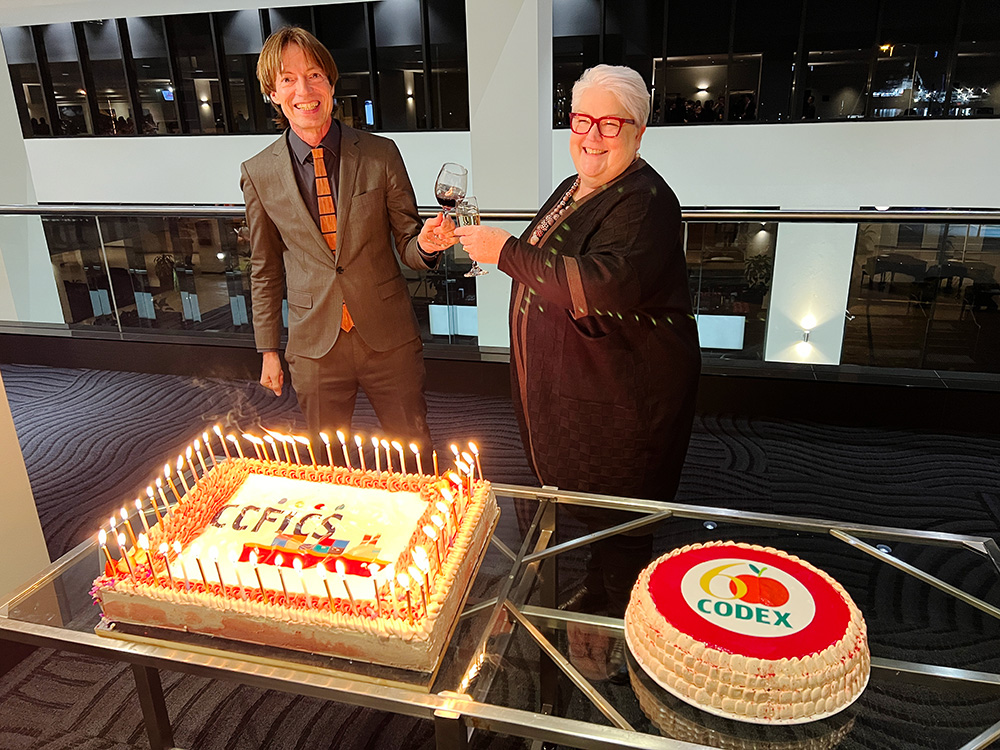The CCNASWP Region
Regional Coordinator Fiji
The 18th session of the Codex Alimentarius Commission, held in 1989, agreed to establish a new Coordinating Committee for North America and the South West Pacific, bringing together, in the words of the New Zealand delegation "far flung countries ... which have many common interests".
CCNASWP is a remarkably diverse region combining fully mature economies such as the USA, Canada, Australia and New Zealand with 10 small island states. The largest of these is Papua New Guinea (population over 7 million) and the smallest, the Cook Islands and Nauru with populations of around 10 000.
The regional coordinator is based within the Fijian Ministry of Agriculture.
Fiji looks forward to applying standards at the national level and supporting all countries in the region, especially the small island developing states, to establish a sound policy framework for food safety. These initiatives will support improvements in public health, ensure that imported food is safe and of the expected quality and develop increased access to international markets.
The regional coordinator will continue supporting work on regional standards and seeks to strengthen participation of the region in Codex in general. This can be achieved by continuing to develop capacity at the national level by enhancing the role of national coordinators and contact points for increased and effective participation in Codex.
CCNASWP Coordinator
All information on Codex is public and free.
For regional enquiries contact:
CCNASWP Secretariat
Ministry of Agriculture
Private Mail Bag
Hugh Robinson Complex
Raiwaqa,
Suva.
Email: [email protected]
Web: www.agriculture.gov.fj
CCFICS / Key role in transition to sustainable agriculture says Minister
Murray Watt, Australian Minister for Agriculture, Fisheries and Forestry and Minister for Emergency Management, speaking via video message, welcomed delegates gathering in Hobart, Tasmania, and online, for the opening of the Codex Committee on Food Import and Export Inspection and Certification Systems (CCFICS) taking place from 1-5 May 2023.
Watt said that achieving sustainable productivity growth in agriculture was increasingly critical to meet global food security concerns arising from the world's growing population. It was also vital to deliver on international commitments to limit climate change, reduce the impact of agricultural production on the environment, and to contribute to the Sustainable Development Goals under the UN 2030 Agenda.
“Free and open global trade will be essential to accelerate the transition to best practice sustainable agricultural production while meeting increased global demand for food and nutrition,” he said, with CCFICS playing a key role in this transition to protect the health of consumers and facilitate the economically and socially vital international trade in safe food.
The FAO work programme is intimately connected to Codex Alimentarius, explained Catherine Bessy. “CCFICS texts are the backbone of our work as we help countries to unpack, adopt and adapt Codex guidelines to their national situations,” she said.
Akio Hasegawa, WHO, said that for 60 years science had played a critical role in the success of Codex. “The decisions made by the Codex Alimentarius have an important impact on public health in the topics discussed at this session,” he said.

Codex Secretary Tom Heilandt with CCFICS Chairperson Nicola Hinder celebrating the 60th Anniversary of the Codex Alimentarius Commission, Hobart, Australia
Speaking via video message, Diego Varela, Chile, Vice-Chairperson of the Codex Alimentarius Commission, said CCFICS continued to make a strong contribution to the work and mandate of the Codex Alimentarius and to “our commitment to the advancement of consensus driven and science-based standards in the interest of people everywhere that we seek to protect.”
“Trade needs trust,” said Codex Secretary Tom Heilandt. CCFICS carries out essential work because it deals with the structures needed to apply Codex standards. “Without these structures functioning well, a standard may convert itself into a barrier to trade,” he said. Heilandt also acknowledged Australia as the first committee host to organize a fully hybrid meeting.
Learn more
©Photo Credit FAO/Codex







Leave a comment